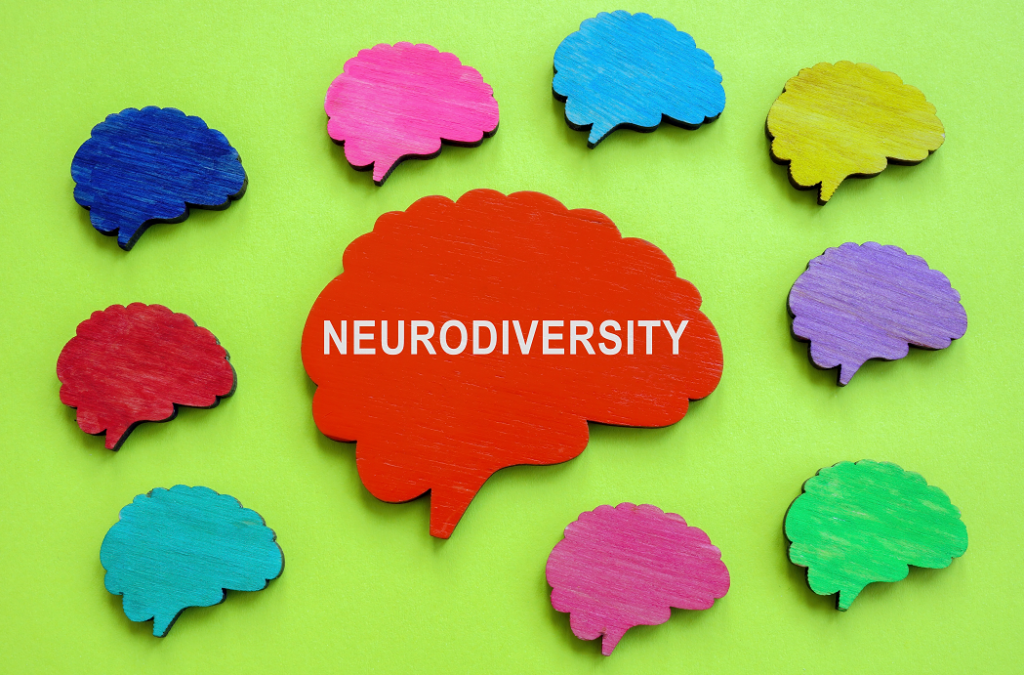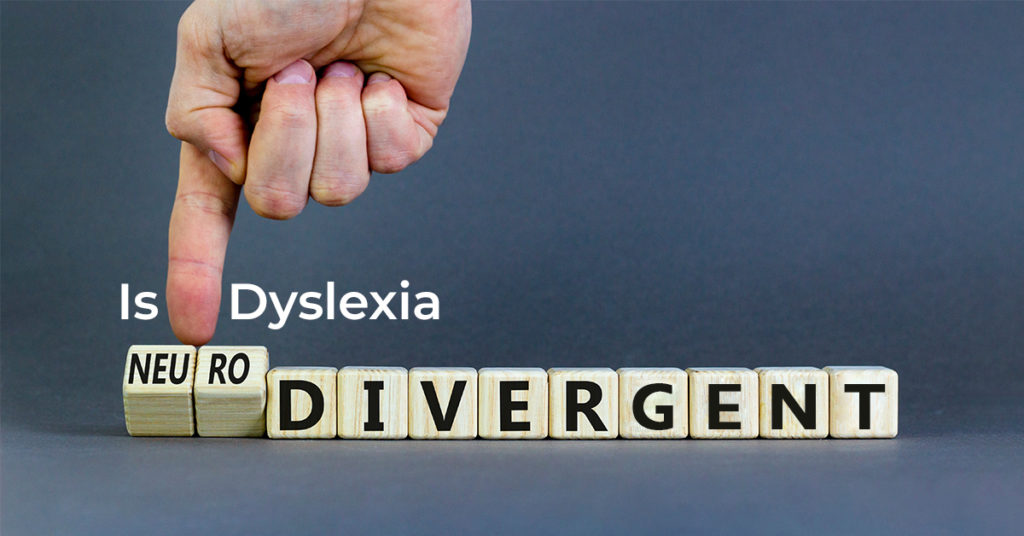Neurodivergent is a non-medical condition, which calls people who have brains that develop or function differently for unknown reasons. As a result, the individual differs from those whose brains develop or function more typically in terms of their strengths and challenges. While some neurodivergent individuals have medical issues, it can also occur in individuals for whom a condition or diagnosis has not been established.
Now, the question is – “is dyslexia neurodivergent” Many dyslexic people exhibit skills in artistic, reasoning, and visual areas. The term “neurodiversity” offers a new perspective on dyslexia that embraces such a positive spin and performs an excellent job of explaining the truth of dyslexia individuals. Neurodiversity is an umbrella word that describes the different thinking ways of people with dyslexia.
What Does It Describe For Someone To Be Neurodivergent?
People whose brain differences disturb how their brain functions are referred to as “neurodivergent”. So, they differ from others whose brains don’t have those differences in both the term of strengths and difficulties. Some likely differences include medical conditions, various physical illnesses, and learning difficulties. And the possible strengths involve extraordinary memory power, skills to solve challenging mathematical calculations in mind, and the ability to visualize three-dimensional (3D) objects easily, and many other qualities.
Although the term “neurodivergent” isn’t a medical state. But, for a better understanding of neurodivergent,it’s important to take dyslexia training from a reliable source. Because it’s a unique approach to characterizing people other than just “normal” and “abnormal”, instead. This is significant because the functioning of the human brain cannot be described as “normal” in a single manner.
Neurotypical further refers to non-neurodivergent individuals. That denotes that any difference that alters the way their brain functions have no bearing on their abilities or difficulties.
Why Is The Term “Neurodivergent” Used?
The word “neurodiversity”, which is related, gave rise to the phrase “neurodivergent”. The term “neurodiversity” was established in 1998 by Australian Sociologist Judy Singer. It typically refers to ways each person’s brain develops differently. No two brains, not even those of identical twins, are exactly alike, similar to a person’s fingerprints. Because of this, the dimensions of the human brain are not defined as “normal”.

Identifying what is normal is crucial for the majority of fields of modern medicine. Healthcare professionals commonly use “yes or no inquiry” and “is it normal” to assess a patient’s physical and mental well-being. A person is either sick or well, depending on the response, based on the symptoms they exhibit or lack, or the things they can or cannot perform. And children who are described as neurodivergent are “differently abled” as the term implies. Because of neurodiversity, it’s normal for children and adults to develop differently and have their own skills and challenges.
Is Being Neurodivergent A Disability?
In addition to searching answer for the question – “is dyslexia neurodivergent”, it’s even a commonly asked question on the internet. Because some neurodivergent people experience problems as a result of systems or processes that deny them the break to demonstrate their talents or present them with fresh or more difficult tasks.
So, let’s discuss them below in detail –
Example 1: Several neurodivergent people have trouble to interact with others, which can make it challenges for them to acquire jobs because they have trouble to crack interviews. They may still be hired, though, if the hiring procedure places an emphasis on their capabilities, such as by administering a skills exam to candidates. Once employed, their attention to detail makes them excellent record-keepers or accountants since they can read data quickly while others might find it monotonous.
Example 2: Some neurodivergent people have trouble in noisy settings. Therefore, they may find a busy office to be overwhelming. However, a set of noise-canceling headphones can provide them with the peace and quiet they require to become the most effective member of their team as one of their talents is their capacity for intense concentration.
In both cases, the person was assisted in overcoming their specific challenge by accommodations. An accommodation for a person with a disability is a way to acknowledge their differences or difficulties and then provide them with a tool or a means of success. The recruiting procedure and the headphones served as accommodations for the neurodivergent individuals in the aforementioned situations.
Although the concept of making accommodations for those with impairments is not new. Some of the major examples include –
- Physical Limitations: For people with physical limits, there are ramps and entrances with automated doors.
- Sensory Impairments: Crosswalks with loud tones that alert people with vision issues that it is safe to cross the roadway.
All of these are important to support people with neurodivergence, along with taking the best dyslexia training program is important to grow your understanding about the lookouts for dyslexia.
What Are The Signs of Being Neurodivergent?
There is no such thing as a “neurodivergent” condition, phrase, or diagnosis. Different brain functions are present in neurodivergent individuals. Even for those with the same medical diagnosis, this is still real. That means a diagnosis can still be made for individuals despite their highly distinct signs and symptoms of dyslexia.
What Conditions Are Possible For A Neurodivergent Individual?
The following disorders are often present in people who are identified as neurodivergent. Although there are no established medical standards or explanations of what it means to be neurodivergent, this word can also apply to other disorders. Additionally, those who suffer from these illnesses could decide not to self-identify as neurodivergent. Among persons who identify as neurodivergent, the following ailments are the most prevalent –
- Autism Spectrum Disorder
- Down Syndrome
- Attention-Deficit Hyperactivity Disorder (ADHD)
- Dysgraphia (writing difficulties)
- Intellectual Disabilities
- Dyscalculia (difficulty to solve mathematical calculations)
- Sensory Processing Disorders
- Dyslexia (difficulty with reading)
- Mental Health Conditions (like bipolar disorder and obsessive-compulsive disorder)
- Social Anxiety
- Dyspraxia (difficulties to coordinate)
- Prader-Willi Syndrome
- Williams Syndrome
- Tourette Syndrome
Is It Possible To Prevent, Treat, or Cure Neurodiversity?
The distinctive way each person’s brain develops is referred to as neurodiversity. Therefore, it cannot be avoided, treated, or cured. But, some of the ailments that lead to neurodivergence are treatable. A specialist or other healthcare professional can also discuss resources for persons with that condition if they were diagnosed with one of the aforementioned conditions. There are numerous potential management strategies, therapy plans, and other things to treat dyslexia.
Medication and behavioral treatment can enhance the quality of life for some people, like those with ADHD. Others may benefit from therapeutic programs that teach them how to “play to their strengths”, or “how to maximize their skills”. They will teach how to deal with problems so that they don’t have much impact on your life. Neurodivergent individuals tend to be accomplish their goals and attain success in life.
What You Can Do To Support Neurodivergent People?

We all can support neurodivergent individuals in a variety of ways. Among the most crucial considerations are the followings –
- Listen: Neurodivergent individuals could sometimes feel excluded or misunderstood. Make sure you are to listen what they want to share about their feelings. Tell them you respect their decisions and that you have heard them.
- Avoid Labels With Values: The labels “high-functioning” and “low-functioning” should not be used to characterize disorders like autism, according to experts. We frequently make assumptions about a person’s level of functioning based on how much they act like a neurotypical person.
- Communicate With Them In A Helpful Manner: Neurodivergent individuals occasionally prefer written communication to oral or face-to-face interaction, such as emails, texts, and instant chatting. Give them the space and means of communication that they require.
- Don’t Assume Anything About Their Disabilities: You should never presume that someone is unable or unintelligent. Neurodivergent individuals frequently have traits or preferences that set them apart or give the impression that they are unique.
- Every Neurodivergent People Are Different: Even when they share the same underlying condition, neurodivergent individuals generally have diverse personalities and interests.
- Treat Every Neurodivergent People With Respect: You can “normalize” and accommodate individuals in a way that respects their inherent human worth.
Final Thoughts
The term “neurodiversity” is used to describe the many ways that each person’s brain functions. Although everyone’s brain develops in a similar way, no two brains work exactly the same. If your brain functions differently from the average or neurotypical person, you are said to be neurodivergent. This could be due to disparities in social preferences, educational approaches, communication styles, and environmental perception techniques. A neurodivergent person as a result has varied problems and distinctive talents. Neurodivergent people can gain from education and programs that enable them to develop their talents and support them to live happily forever.
In case you want to explore more about – “is dyslexia neurodivergent”, you are recommended to contact us and clear all your concept about the lookouts for dyslexia.
